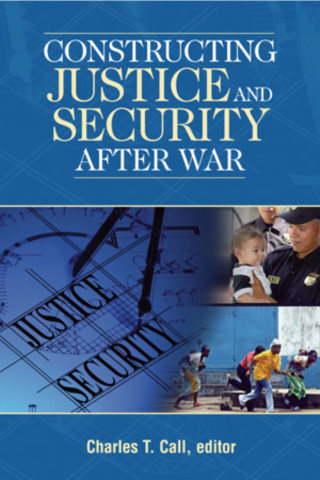Distinguished scholars, criminal justice practitioners, and former senior officials of international missions examine the experiences of countries that have recently undergone transitions from conflict with significant international involvement.
“Charles Call has produced an excellent resource for practitioners and scholars concerned with rebuilding societies following violent conflict. Drawing from a rich set of case studies, Constructing Justice and Security after War is a well-researched study that will help policy-makers avoid repeating mistakes of the past. This volume provides much-needed clarity on these often complex, but always central, elements of the rebuilding challenge.”
Robert C. Orr, Assistant Secretary-General for Policy Coordination and Strategic Planning, United Nations
"Charles T. Call has drawn on his long and engaged experience in many countries emerging from conflict, to produce a rigorous and highly readable study of the challenges of post-conflict reconstruction, and of experiments to introduce judicial, police and military reform (both successful and failed). He has also assembled an impressive array of experts on different countries and situations, thereby enriching the book with lessons to be drawn from a wide spectrum of experience. Professor Call and his colleagues have thereby produced an early systematic look at what is being done to reform institutions that have, in the recent past, been the instrument of egregious abuse. This book is indispensable reference material for policy-makers and practitioners in the growing field of institutional reform; more importantly, it starts us in the learning process that will produce better results in the near future."
Juan E Méndez, President, ICTJ and Special Advisor to the Secretary General (UN) on the Prevention of Genocide
"This is a first-rate volume addresses one of the most challenging but important issues of our time: how to construct a stable and self-sustaining public security apparatus after war. Time and again policymakers have confronted the simple fact that the failure to develop legitimate security and justice institutions after war has increased the risk of a return of violence. It is incredibly difficult to get it right. But this collection convincingly demonstrates that there are policies that can improve the chances of success - and, conversely, policies that must be avoided at all costs. An excellent volume that is must reading for anyone interested in Third World security, peacebuilding, and the challenge of creating stability after war."
Professor Michael Barnett, Stassen Chair of International Affairs and Professor of Political Science, Humphrey School of Public Affairs, University of Minnesota

